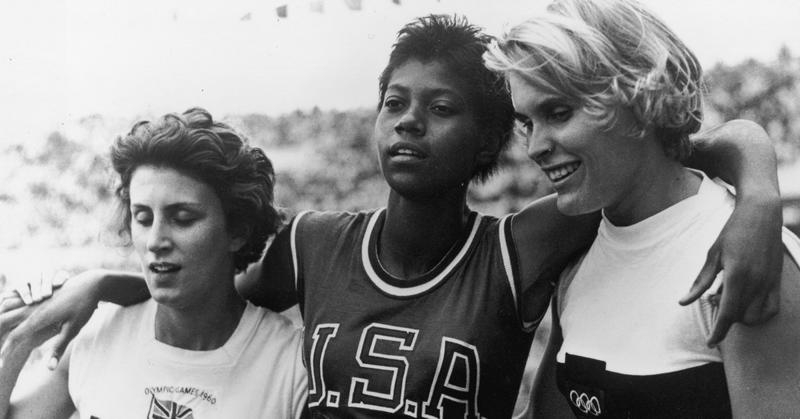1960: The First Woman To Win 3 Olympic Gold Medals Had Polio
By | August 26, 2019

Wilma Rudolph was an Olympic gold medalist whose achievements made her an important figure in American sports history and the Civil Rights movement. Rudolph was the first woman to win three gold medals at a Summer Olympics, but she shared the fate of many black athletes of the time: an elite competitor in the arena, but a second-class citizen at home.
Rudolph faced challenges and frustrations as an adult athlete but then, her life had been challenging and frustrating from the start. In her youth, she overcame frailty, illness, and even polio -- a disease that specifically affects the legs. Rudolph was lucky to be able to walk, much less run, yet she proved herself the fastest woman alive in 1960.
Young Wilma Rudolph Was A Sickly Child, And Contracted Polio

From birth, Rudolph was a fighter. She was born prematurely on June 23, 1934. There was fear that the 4.5-pound infant would not survive, but this little girl, the 20th of 22 children born to Ed Rudolph, a railway porter in Clarksville, Tennessee would continue to thrive, despite all of the challenges she faced. Before the age of four, she suffered from pneumonia and scarlet fever.
Then, at four, she contracted polio. After the virus crippled her left leg, she had to wear a leg brace. Her family massaged her leg several times a day to try to heal it and then, at the age of nine, the brace came off and she wore orthopedic shoes for the next two years. By the time she was 12, she was able to not only walk but to run and jump and do everything that kids who had not suffered from a debilitating disease could do. In high school, she tried out for the track team but did not make the cut although her sister did. Her father advocated for her, arguing that if one of the girls was going to be on the team, the other had to as well. She also joined the basketball team.
At First, Wilma Rudolph Was Not Good At Track. She Lost A Lot

Rudolph's career as a runner was slow to start, from her initial rejection from the track team to her failures in a track meet at the Tuskeegee Institute, where she lost every race. However, she was noticed by Ed Temple while playing basketball. Temple recruited her to participate in his summer track program at Tennessee State University. She joined his group of all-female African American runners, the Tigerbelles. A year later, at the age of 16, she won her first Olympic medal: a bronze medal for the 4 X 100-meter relay race at the 1956 Summer Olympics in Melbourne, Australia. When she returned to high school after that summer, she became pregnant with her first child, Yolanda. She then attended TSU, where she studied education.
Wilma Rudolph Won Gold Medals And Set New Records

In 1960, Rudolph competed in the 1960 Summer Olympics in Rome, Italy. In this, her second Olympics, she became the first woman athlete to win three gold medals in the Olympics. She won individual medals in the 100 and 200-meter races and in the 4 X 100-meter relay. She broke the world record in the 200-meter race and was part of the team that established the world record in the relay. After her first marriage, to a fellow track star, William Ward, ended in divorce, she married her high school sweetheart and the father of her daughter, Robert Eldridge.
Rudolph Rejected Celebrations That Were Not Integrated

In addition to facing the challenges posed by her illness at a young age, she had to contend with racism. Despite their success and fame, as African American athletes, Rudolph and her teammates faced the realities of racism and segregation. After she became the first female to win three gold medals, she refused to attend segregated celebratory events. Because of her refusal, when she returned to her hometown, her parade and banquet were the first non-segregated events in the city’s history.
Rudolph Lived A Quiet Life After The Olympics, But Will Always Be Remembered

Unlike many current athletes, Rudolph did not profit off of her fame. Instead, in 1962, at the peak of her running career, she retired. She became a second-grade teacher and a track coach. She also created a nonprofit organization to help underprivileged kids to succeed in sports. She published an autobiography, Wilma, in 1977. In 1994, she died from brain cancer, but her legacy of courage and strength lives on.
Wilma Rudolph was inducted into four different halls of fame and received several awards. In 1996, an award in her name, the Wilma Rudolph Courage Award for best Women Athletes, was given to Jackie Joyner-Kersee.
